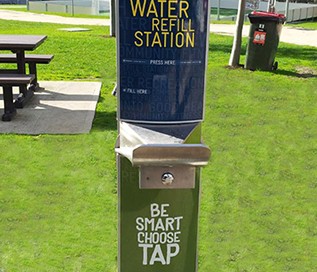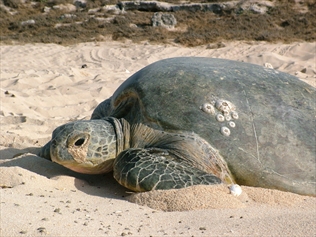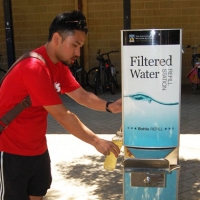Case Study
August 29, 2013
Working towards its ‘Green Star’ goal
Challenge: Environmentally sustainable initiatives to help reach goal of becoming a ‘Green Star – Education v1’ enterprise.
Solution: Water refill stations and drinking fountains across three Deakin campuses.
Result: A sustainable initiative in the effort to achieve best practice water conservation.
Working towards its goal of being a ’Green Star – Education v1’ enterprise that integrates environmental sustainability principles into all of its operations, policies and activities, Deakin University has installed aquafil™ water refill stations and drinking fountains in key locations across three campuses.
This is one of several environmentally sustainable initiatives implemented by Deakin in an effort to achieve best practice water conservation, stormwater management and waste management practices, following detailed water audits that were undertaken at each campus.
Detailed research around accessibility was carried out to determine which water units would be best suited to the University’s needs.
aquafil™ offers a wide range of water refill stations and drinking fountains to choose from. As well as being wheelchair accessible, the units have a range of optional features, such as water meters to track usage, filtered or non-filtered options, dog bowls and display panels for advertising.
‘The units met accessibility requirements from an OHS perspective and the choice of optional extras made aquafil™ the perfect choice,’ says Amanda Neilson, Deakin University’s Senior Sustainability Officer.
Thirteen aquafil™ water refill stations and drinking fountains have been installed across three Deakin campuses – Geelong Waurn Ponds Campus, Melbourne Burwood Campus and Warrnambool Campus.
The initiative, coupled with the ’Be Smart Choose Tap‘ awareness campaign, has helped encourage staff and students to refill their own drink bottles instead of purchasing water in plastic bottles, aligning with the University’s objective to reduce waste to landfill.
Melbourne is reputed for having some of the best drinking water in the world, but each year Australians still spend more than $500 million on purchasing bottled water. This means Australians are paying 700 times more per 500ml of bottled water than they would for tap water.
Not only are millions of dollars wasted annually on bottled water, the plastic waste that ends up in landfill, waterways and oceans has a severe impact on our environment. Plastic bottles, which take an average estimated time of 450 years to break down, kill our bird and marine life when they mistake them for food.
The installation of aquafil™ water refill stations and drinking fountains addresses a key feature in Deakin’s Strategic Plan LIVE the future: Agenda 2020, which provides the opportunity to extend the definition and practice of ‘sustainability’ to include economic, social and environmental concepts.




